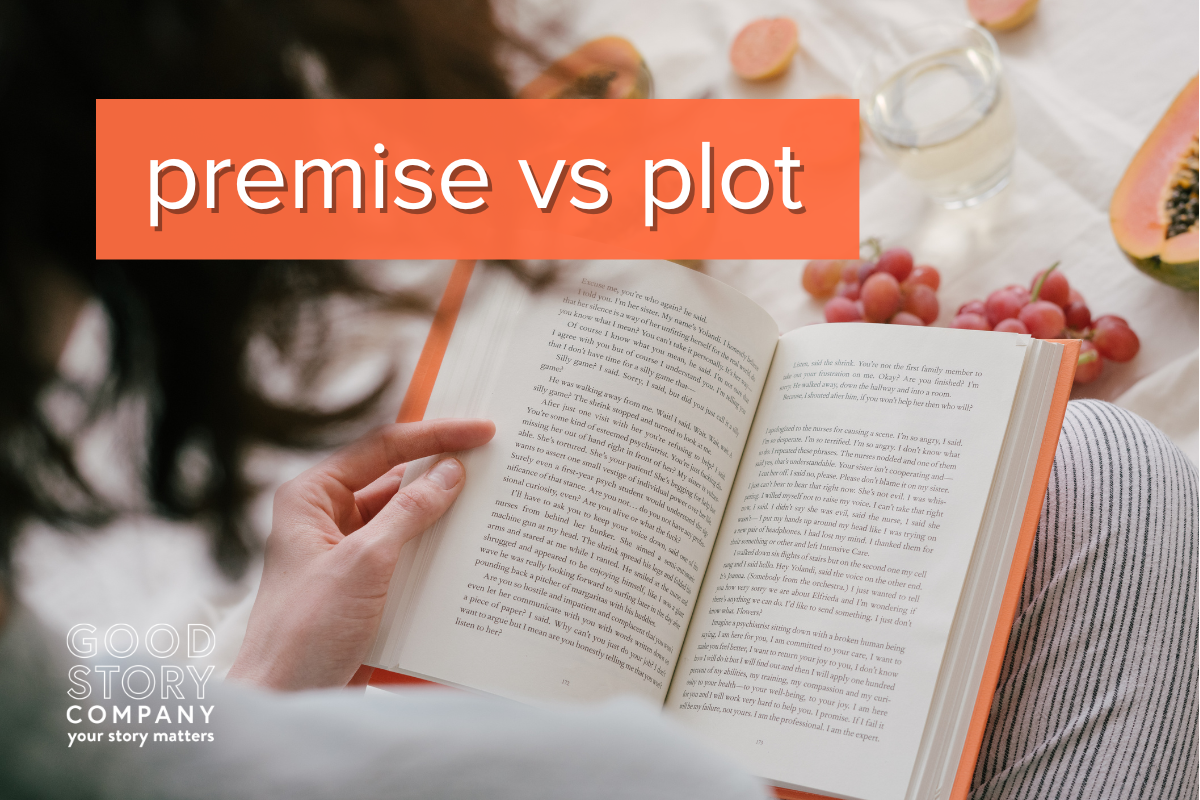Premise Vs Plot
The concept of premise vs. plot is a common stumbling block for many writers. They’ll think they have a killer idea for a manuscript lined up, but when they sit down to write, the energy fizzles out partway through. Why isn’t a great story idea enough?
The premise is the main idea of a story. The pitch. The hook. The quick description you throw out when you’re trying to sell your book club or a friend on reading a particular book. The premise of The Hunger Games is that the government forces teenagers to fight to the death. The premise of Twilight is vampires who resist killing humans. The premise of Harry Potter and the Sorcerer’s Stone is that magic is real.
Premise vs plot: great premise, but is there enough plot? Spoiler alert: YES.
Working on a story idea? Want to get it done—yes, done—in just six months? Get ready to submit, launch and go to market with Story Mastermind.
Do those ideas sound enticing? You bet! These are some interesting premises. But … they’re also kind of thin. Would you read three hundred pages about teenagers fighting to the death, if that was it? Maybe not. But reading about Katniss’ desire to protect her younger sister, Panem’s lottery, Peeta’s friendship, Gale’s history, the different regions of Panem, the Capitol, the televised rankings and viewings, the other contestants, Katniss’ emotional journey, the survival techniques she and others use in the arena, the delicate political balance these games enable, the aftermath of her victory and the games … well, those are meaty ingredients that make for a compelling plot.
Premise vs Plot: the Showdown
For a premise to take off, it needs more than that initial idea. A book needs a beginning, middle, and end. In weighing whether you have a great premise vs. plot, take a look at how quickly you can sum up your concept. Of course, it’s great to have a one-line description, but does your premise go beyond that? The first thing a plot needs is a character. In Hunger Games, the government forces Katniss Everdeen to fight to the death. Twilight—Bella Swan falls in love with Edward Cullen, a vegetarian vampire. Harry Potter and the Sorcerer’s Stone—Harry Potter discovers he’s a wizard.
Think about how much conflict and plot arises simply from these main characters. Katniss, Bella, and Harry’s own particular personalities and quirks give these premises legs. They are also active characters who make choices and set plot events in motion. The plot itself needs more than one idea. If Harry spent all of the first book musing about magic being real and exploring his own magical abilities, a reader would soon grow bored. But almost as soon as he learns about the existence of magic, Hagrid whisks him off to Diagon Alley, the Hogwarts Express, and Hogwarts, where the Dark Lord he once vanquished now attempts to regain a body and destroy Harry.
How to Turn a Premise into a Plot
If you’re looking at a great idea you’ve had, just a killer premise, and wanting to turn it into a full novel, I guarantee you can do it. One way is to ask yourself, “So what?” about each element in your premise. So what if Edward Cullen is a vegetarian vampire? Well, if he falls for the one girl whose blood he wants more than anyone else’s, that’s some conflict. So what if this new breed of vampires lives in the north so they can remain secret? A roving band of non-vegetarian vampires could expose them and ruin their haven. Those are stakes. So what if a human and a vampire fall in love? If Edward refuses to turn Bella into a vampire because of that love, their happily ever after has obstacles.
“What happens if…” is another excellent question when trying to elevate a great premise into a plot. Think of all the questions explored in this series, big and small. What happens if wizards play sports? What happens if love potions work in this world? What happens if there are wizards outside of England? What happens if Harry’s greatest enemy secretly helps him? What happens when Harry grows from a young boy to an older teenager? What happens if Voldemort is reborn? What happens if Harry’s mentor dies? The premise of the Harry Potter books was only strong enough to carry seven long books because of the plots the author developed from that premise.
What if you ask yourself these questions … and you can’t come up with compelling answers? Maybe your premise is strong enough for a short story, not a novel. Maybe it needs to be combined with another interesting idea. Maybe it needs to be grounded in an interesting world or with a more creative cast of characters. I always wanted to write a museum heist, but although I fiddled with the premise, it never worked for me. But when I realized that the museum heist could be the driving force in a plot in an alternate history of the 1920s, as long as my mastermind was a gentle young actress being blackmailed into it, it clicked into place.
These suggestions all mean the same thing: the premise needs more, whether that’s time, depth, characters, setting, conflict, compelling characters, or stakes. In the premise vs. plot faceoff, a premise is short, hooky, and interesting, but a plot is what keeps the reader turning pages after that first chapter.
If you’re serious about taking your writing to the next level and want to get there fast, you need Story Mastermind. In just six months, you could have a complete, polished draft in hand, along with a plan to submit it and position it in the market. Applications open twice a year, February-July and September-January. This post contains affiliate links.

